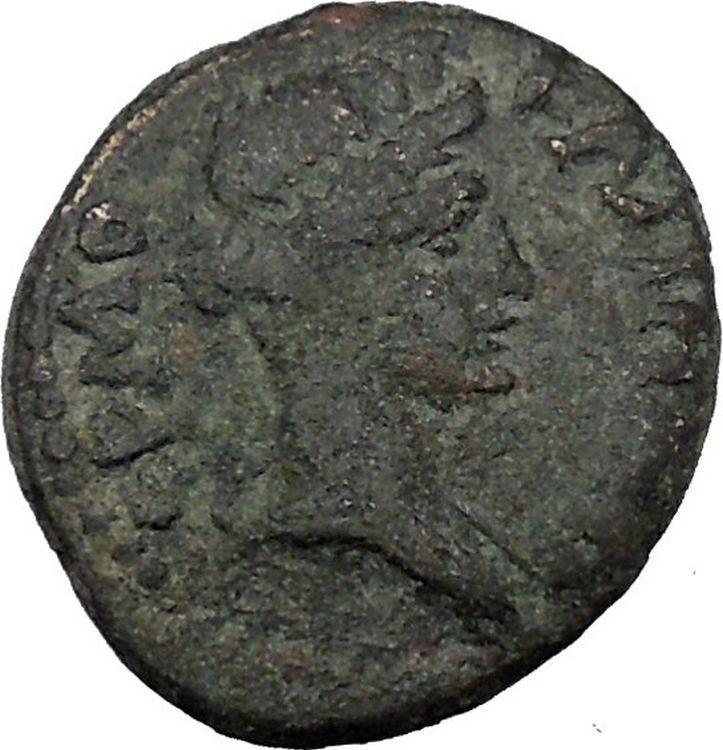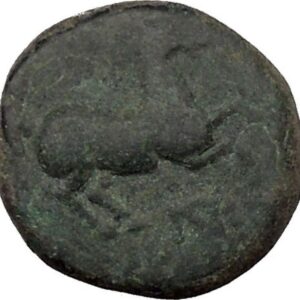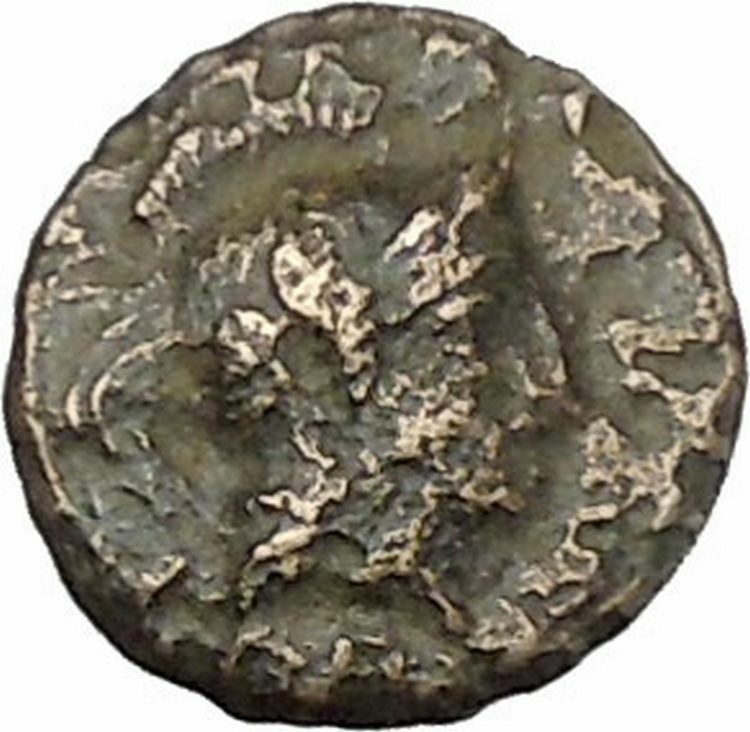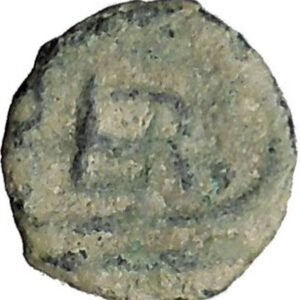|
Greek city of Antioch on the Orontes in Seleukis and Pieria
Pseudo-Autonomous Issue Time of Roman Emperors Galba and Otho
Bronze Dichalkon 13mm (4.14 grams) Dated year 117 of the Caesarean Era, struck 68/69 A.D.
Reference: RPC I 4323; McAlee 116(b)
Head of Apollo right, wearing tainia.
ET ZIP around laurel branch.
Founded by Seleukos I circa 300 B.C. with Greek and Macedonian settlers brought from the destroyed city of Antigoneia on the Orontes. The city was named after Seleukos’ father with the purpose of being a western capital to guard against the northern expansion of the Ptolemaic kingdom. Eventually as many territories were lost, Antioch became the only capital of the Seleukid kingdom. Pompey the Great deposed the last king Antiochos XIII in 64 B.C. The Romans then made it a capital of a new Roman province and the seat of the Roman governors. There were temples of Olympian Zeus, Apollo in Daphne, hippodrome (built under the Seleukids and embellished by the Romans) and colonnaded main streets (being a gift from Herod the Great). It was an important center for the arts and learning.
You are bidding on the exact item pictured, provided with a Certificate of Authenticity and Lifetime Guarantee of Authenticity.
 In Greek and Roman mythology, Apollo, is one of the most important and diverse of the Olympian deities. The ideal of the kouros (a beardless youth), Apollo has been variously recognized as a god of light and the sun; truth and prophecy; archery; medicine and healing; music, poetry, and the arts; and more. Apollo is the son of Zeus and Leto, and has a twin sister, the chaste huntress Artemis. Apollo is known in Greek-influenced Etruscan mythology as Apulu. Apollo was worshiped in both ancient Greek and Roman religion, as well as in the modern Greco-Roman Neopaganism. In Greek and Roman mythology, Apollo, is one of the most important and diverse of the Olympian deities. The ideal of the kouros (a beardless youth), Apollo has been variously recognized as a god of light and the sun; truth and prophecy; archery; medicine and healing; music, poetry, and the arts; and more. Apollo is the son of Zeus and Leto, and has a twin sister, the chaste huntress Artemis. Apollo is known in Greek-influenced Etruscan mythology as Apulu. Apollo was worshiped in both ancient Greek and Roman religion, as well as in the modern Greco-Roman Neopaganism.
As the patron of Delphi (Pythian Apollo), Apollo was an oracular god – the prophetic deity of the Delphic Oracle. Medicine and healing were associated with Apollo, whether through the god himself or mediated through his son Asclepius, yet Apollo was also seen as a god who could bring ill-health and deadly plague as well as one who had the ability to cure. Amongst the god’s custodial charges, Apollo became associated with dominion over colonists, and as the patron defender of herds and flocks. As the leader of the Muses (Apollon Musagetes) and director of their choir, Apollo functioned as the patron god of music and poetry. Hermes created the lyre for him, and the instrument became a common attribute of Apollo. Hymns sung to Apollo were called paeans.
In Hellenistic times, especially during the third century BCE, as Apollo Helios he became identified among Greeks with Helios, god of the sun, and his sister Artemis similarly equated with Selene, goddess of the moon. In Latin texts, on the other hand, Joseph Fontenrose declared himself unable to find any conflation of Apollo with Sol among the Augustan poets of the first century, not even in the conjurations of Aeneas and Latinus in Aeneid XII (161-215). Apollo and Helios/Sol remained separate beings in literary and mythological texts until the third century CE.
|





 In Greek and Roman mythology, Apollo, is one of the most important and diverse of the Olympian deities. The ideal of the kouros (a beardless youth), Apollo has been variously recognized as a god of light and the sun; truth and prophecy; archery; medicine and healing; music, poetry, and the arts; and more. Apollo is the son of Zeus and Leto, and has a twin sister, the chaste huntress Artemis. Apollo is known in Greek-influenced Etruscan mythology as Apulu. Apollo was worshiped in both ancient Greek and Roman religion, as well as in the modern Greco-Roman Neopaganism.
In Greek and Roman mythology, Apollo, is one of the most important and diverse of the Olympian deities. The ideal of the kouros (a beardless youth), Apollo has been variously recognized as a god of light and the sun; truth and prophecy; archery; medicine and healing; music, poetry, and the arts; and more. Apollo is the son of Zeus and Leto, and has a twin sister, the chaste huntress Artemis. Apollo is known in Greek-influenced Etruscan mythology as Apulu. Apollo was worshiped in both ancient Greek and Roman religion, as well as in the modern Greco-Roman Neopaganism.




